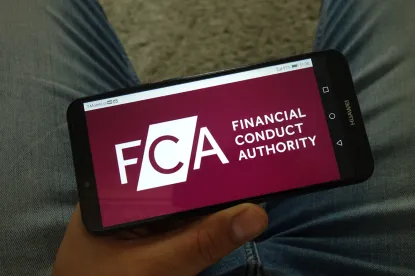The Financial Conduct Authority’s new powers to more swiftly cancel or change firms’ regulatory permissions have now come into effect. These powers are particularly aimed at firms that have permissions they are not using. Firms can be required to prove they are carrying out the regulated activities they have permissions for, or risk losing their permissions. It can be expected that the FCA will be increasingly active in the coming months in looking to strip firms of unused permissions via this new streamlined process. Firms should continue to think carefully about whether they have permissions they are not using and should voluntarily relinquish to avoid incurring the regulator’s ire.
Background to the new powers
The new powers are intended to address one of the key findings of the Dame Gloster Report into the FCA’s regulation of London Capital & Finance Plc, the defunct mini-bond issuer that collapsed in January 2019. Dame Gloster concluded that investors had been misled into thinking that LCF bonds were regulated products, because the issuer held regulatory permissions that did not apply to the bonds. In two consultations in 2021 the FCA expanded upon these concerns that consumers were being put at risk of misunderstanding how much protection they may have from FCA oversight of firms’ activities. Launching the new powers, Mark Steward, Executive Director of Enforcement and Market Oversight at the FCA, said:
‘Businesses with permissions they don’t need or use, risk misleading consumers. These new powers will enable us to take quicker action to cancel permissions that are not used or needed. Firms should regularly review their permissions, ensure they are correct, and they are acting in accordance with them. If they are not needed or used, they should seek to cancel them.’
While the FCA had previously been able to change a firm’s permissions if it hasn’t used them, the process was cumbersome and slow and required the firm’s application or consent to cancel or change permissions. As the FCA’s press release says, the new power will accelerate the FCA’s existing ‘use it or lose it’ initiative, which has seen it carry out over 1,000 assessments since May 2021 to see whether firms are undertaking the regulated activities for which they have permission. This has already resulted in 264 firms applying voluntarily to cancel, and a further 47 to modify, their permissions to carry out regulated activities.
Under its new power, the FCA can now cancel or change a firm’s permissions by a faster, more streamlined process where a firm is not carrying out any FCA-regulated activities for which they have permission and when certain additional conditions are met.
Who does this apply to?
The new power only applies to firms authorised, or deemed under the temporary permissions or supervised run-off regimes, to be authorised by the FCA under Part 4A of the Financial Services and Markets Act 2000 (“FSMA“). It does not therefore apply to firms authorised by the Prudential Regulation Authority (“PRA“) or to firms authorised otherwise than under Part 4A of FSMA, such as payment service providers or electronic money issuers.
How will the process work?
In summary:
-
The FCA will provide a firm with two warnings if it believes the firm is not using its regulatory permission(s). Where a firm fails to pay its regulatory fees, submit returns, or complete annual declarations, the FCA may consider these as indicators of a lack of regulated activity.
-
The FCA will then be able to cancel the permission, or change it, 28 days after the first warning, if the firm has not taken appropriate action.
-
The firm may apply for an annulment of the decision, and both the FCA and the firm may refer the matter to the Upper Tribunal after this point.
-
The FCA will then reflect any changes and cancellations on its Financial Services Register.
What action should firms take?
The FCA regularly issues reminders to firms to review their regulatory permissions. In light of the new power, firms should take extra care to ensure their permissions are up to date and removed where these are not used. If you are an FCA-authorised firm that is no longer carrying out any FCA-regulated activity, you can cancel an authorisation or apply for a variation of permission.




 />i
/>i

